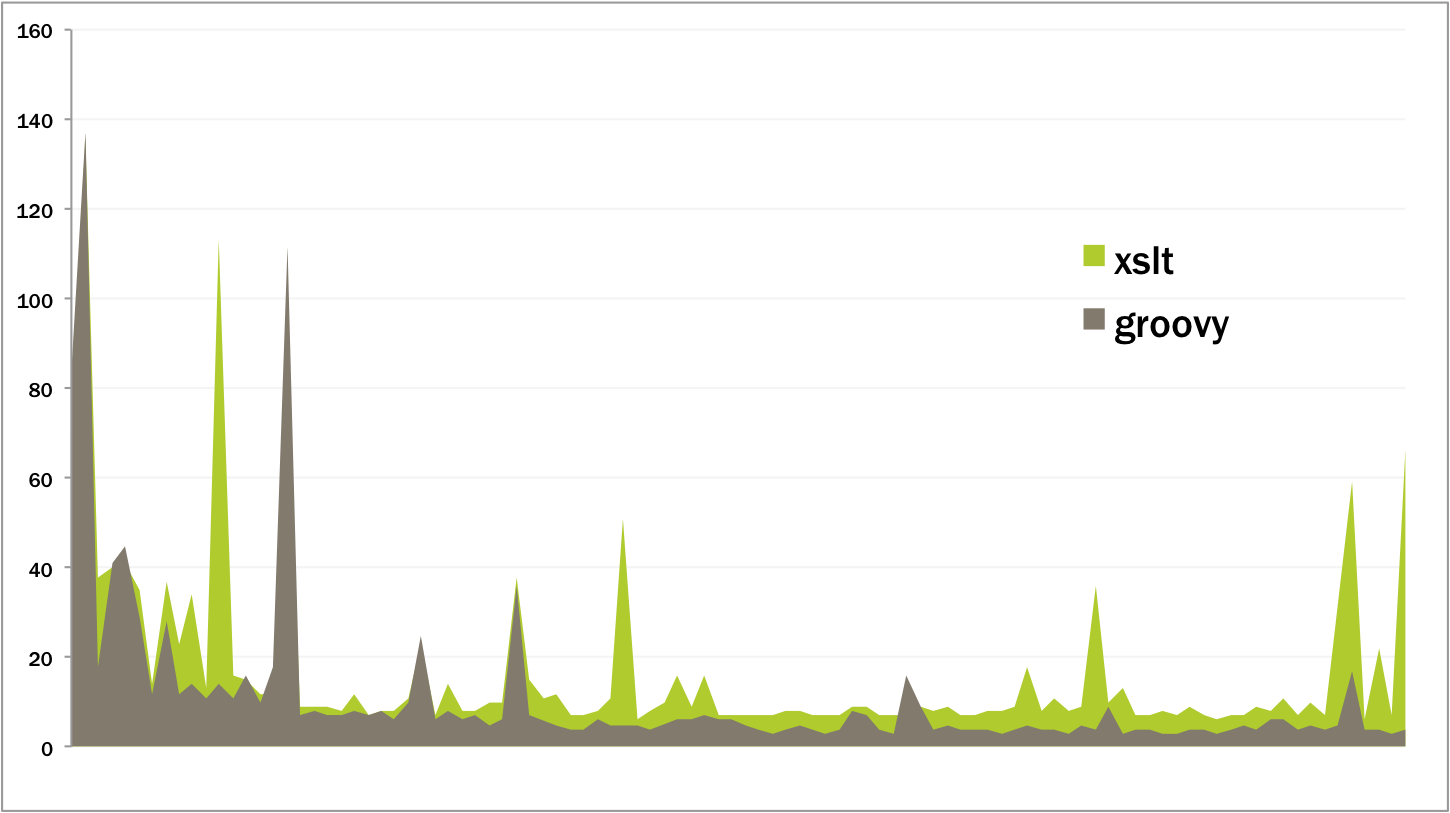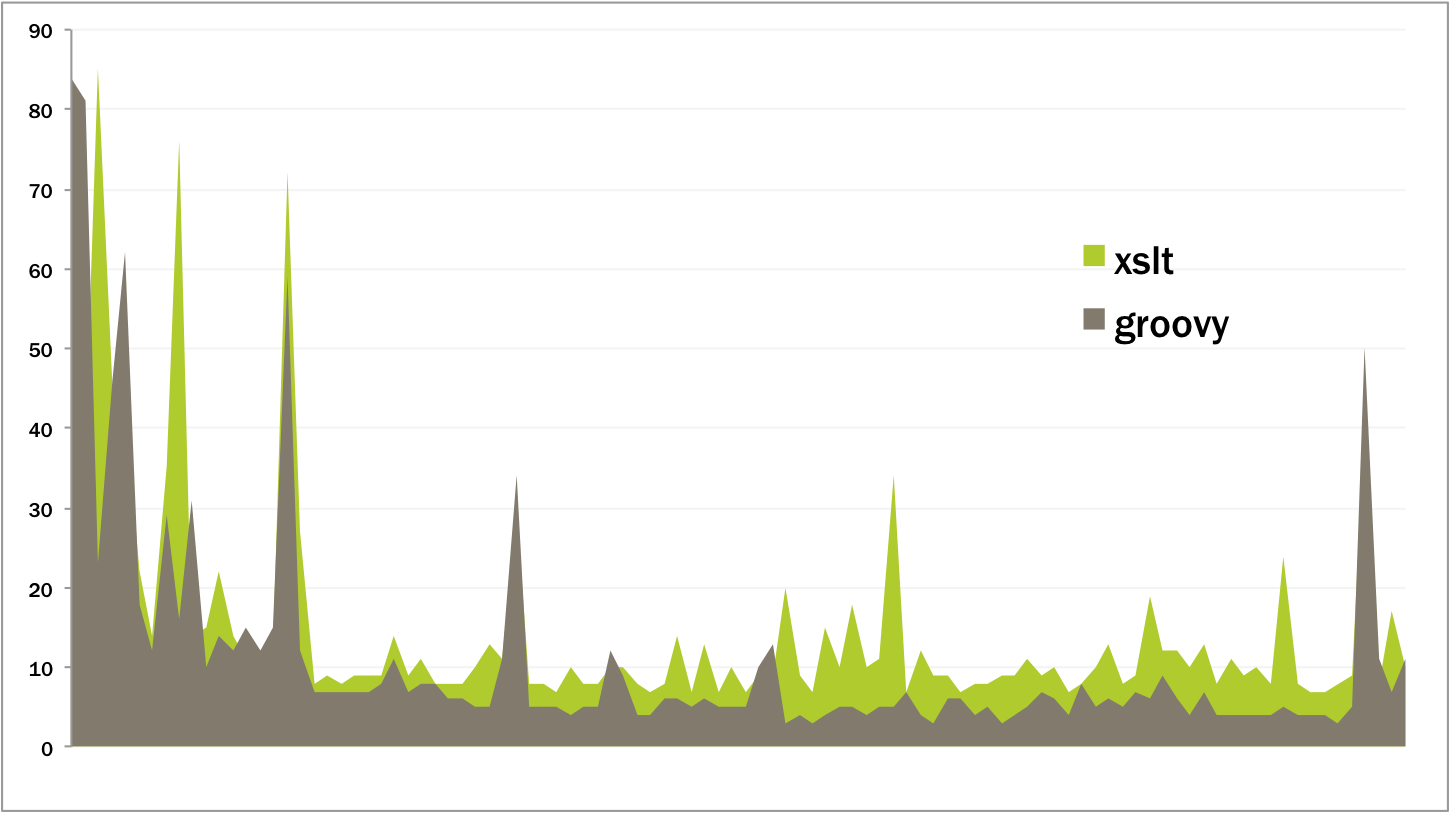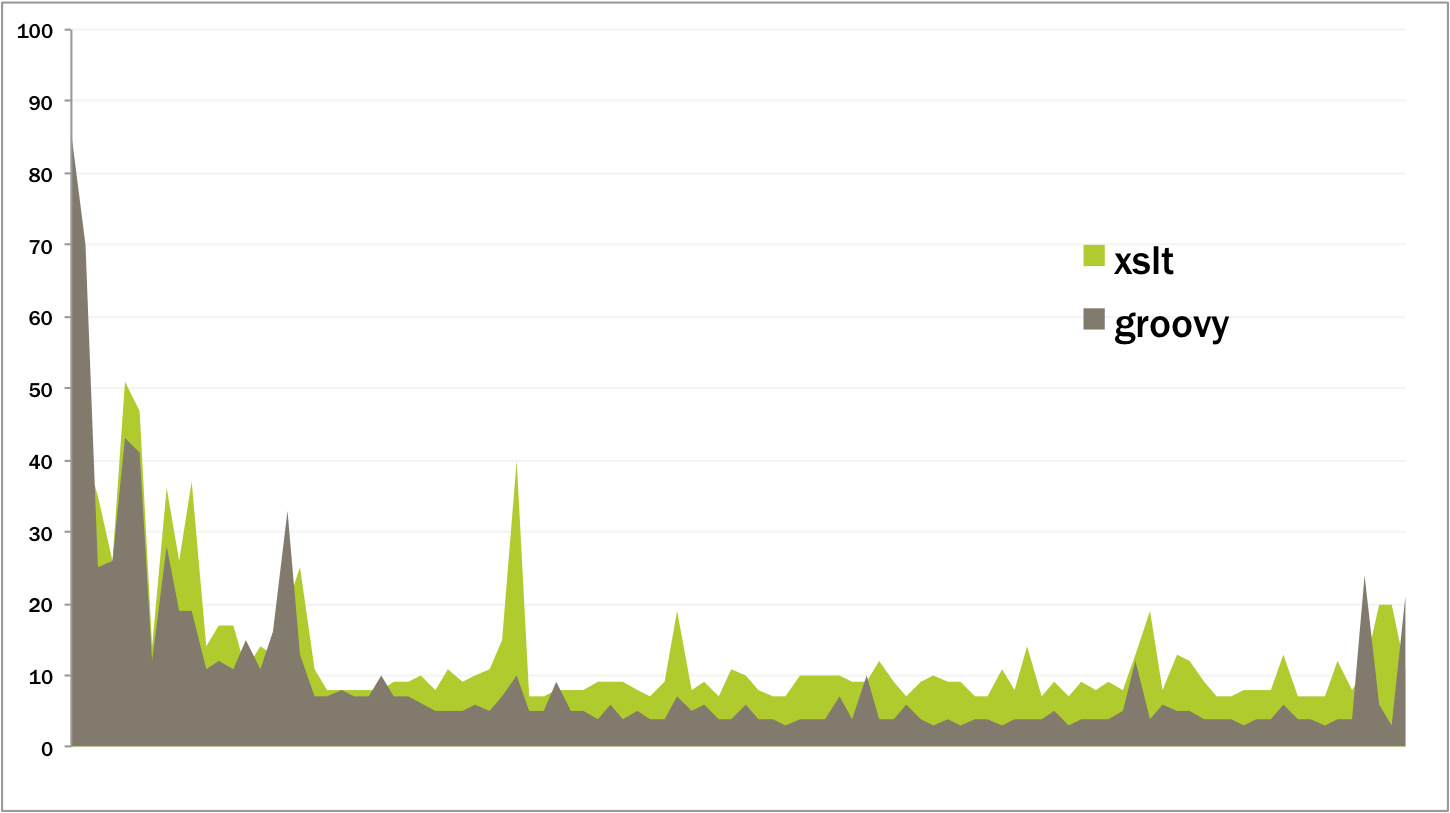XML Transformation Performance: Groovy vs XSLT
August 18th, 2012
There’s a good variety of options available for transforming XML. In addition to the standards (XSLT and XQuery), Groovy has excellent XML manipulation support with MarkupBuilders and XMLSlurpers.
I wanted to know how XSLT and Groovy compare in terms of performance, but couldn’t find anything online. So, I decided to measure it myself.
DISCLAIMER: I tried as much as I could to make the comparison fair. For instance, I kept both the XML and the transform logic as simple as possible. That said, exact steps each transform follows aren’t identical and that may have impacted the results. Moreover, I used standard java libraries based on Xalan (javax.xml.transform.*) to execute the XSLT code. It may be possible to get better results with Saxon.
My results show that Groovy was consistently faster, about 44% on average. The details of my tests are shown below.
The Test
Here’s the XML I wanted to transform:
1 2 3 4 5 6 7 8 9 10 11 12 13 14 15 16 17 18 | <items><item><id>1</id><name>ZVHHNW73O</name></item><item><id>2</id><name>3T4HDAPOX</name></item><item><id>3</id><name>LUHQSSYMA</name></item><item><id>4</id><name>PA6H6PVJ9</name></item></items> |
I wrote two transforms, in XSLT and in Groovy, to generate a simple HTML page. Here’s the XSLT:
1 2 3 4 5 6 7 8 9 10 11 12 13 14 15 16 17 18 19 20 21 | <xsl:stylesheet version="2.0" xmlns:xsl="http://www.w3.org/1999/XSL/Transform"><xsl:template match="/"><html><head><title>list of items</title></head><body><h1>items</h1><ul><xsl:apply-templates select="items/item" /></ul></body></html></xsl:template><xsl:template match="item"><li><xsl:value-of select="name"/></li></xsl:template></xsl:stylesheet> |
And here’s the Groovy:
1 2 3 4 5 6 7 8 9 10 11 12 13 14 15 16 17 18 | def inXml = new XmlSlurper().parse(xmlFile)def writer = new StringWriter()def outXml = new MarkupBuilder(writer)outXml.html {head {title {'list of items'}}body {h1 {'items'}ul {inXml.item.each {li(it.name.text())}}}}writer.toString() |
I then ran both transforms and timed their execution results:
1 2 3 4 5 6 7 8 9 10 11 12 13 | xsltTransformer = factory.newTransformer(new StreamSource(new FileReader(xsltPath)))xml = new FileReader(xmlPath)groovyTransformer = new GroovyXmlTransformer()xsltStart = new Date()xsltTransformer.transform(new StreamSource(xml), new StreamResult(System.out))xsltStop = new Date()xslElapsed = TimeCategory.minus(xsltStop, xsltStart)groovyStart = new Date()groovyTransformer.transform(new FileReader(xmlPath))groovyStop = new Date()groovyElapsed = TimeCategory.minus(groovyStop, groovyStart) |
The Results
I ran three sets of comparisons (100 times each, transforming an XML document with a 1,000 items). The results are shown below:
run 1
run 2
run 3
You may also like:
Did you love / hate / were unmoved by this post?
Then show your support / disgust / indifference by following me on
Twitter!


